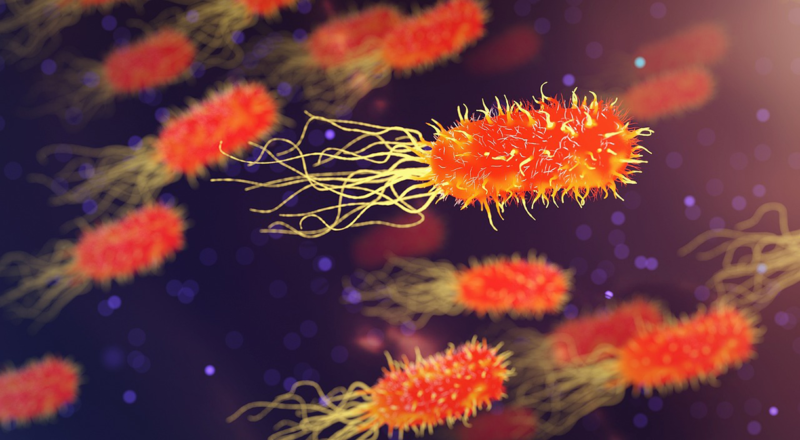
Science has always been a driving force behind human progress, uncovering the mysteries of the universe and enabling technological advancements that transform society. Every now and then, groundbreaking discoveries come along that have the potential to change the way we live, think, and interact with the world. From unraveling the origins of the universe to breakthroughs in medicine, here are five incredible scientific discoveries that could change everything.
1. Quantum Computing: Revolutionizing Technology and Science
Quantum computing is a game-changing technology that leverages the principles of quantum mechanics to perform computations far beyond the capabilities of traditional computers. Instead of using binary bits (0s and 1s), quantum computers use qubits, which can exist in multiple states simultaneously. This opens the door to solving complex problems in a fraction of the time it would take classical computers.
The Potential Impact: Quantum computing could revolutionize industries such as cryptography, artificial intelligence, materials science, and medicine. It could help researchers simulate molecules to discover new drugs, optimize supply chains, and crack even the most sophisticated encryption methods. The possibilities are endless, but we are still in the early stages of developing fully functional quantum computers.
Why It Could Change Everything: The speed and power of quantum computers could transform everything from scientific research to national security. Imagine a world where we can develop new materials or solve complex problems that were previously impossible to tackle due to computational limitations. Quantum computing has the potential to accelerate technological advancements at an unprecedented rate.
2. CRISPR Gene Editing: A Future Without Genetic Diseases?
CRISPR-Cas9 is a revolutionary gene-editing technology that allows scientists to precisely alter DNA sequences in living organisms. This tool gives researchers the ability to “cut and paste” genes, opening up the potential to correct genetic defects, eliminate hereditary diseases, and even enhance certain traits.
The Medical Breakthrough: CRISPR has already shown promise in curing genetic diseases such as sickle cell anemia, muscular dystrophy, and cystic fibrosis. The technology is also being explored for its potential to treat cancer, HIV, and other life-threatening conditions. With further development, CRISPR could one day enable the elimination of genetic disorders from the human population entirely.
Ethical Considerations: While the medical potential is immense, CRISPR raises ethical questions about gene editing in humans. The possibility of “designer babies,” where parents could select traits like intelligence or physical appearance, has sparked intense debate. Careful regulation and oversight will be necessary to ensure the responsible use of gene-editing technologies.
Why It Could Change Everything: If we can safely and ethically harness the power of CRISPR, we could eliminate many of the world’s most devastating genetic diseases, drastically improving quality of life for millions of people. The ability to edit genes could also lead to agricultural breakthroughs, creating crops that are more resilient to climate change, pests, and disease.
3. Nuclear Fusion: The Key to Unlimited Clean Energy
Nuclear fusion has long been hailed as the “holy grail” of energy production. Unlike nuclear fission, which splits atoms and creates hazardous waste, fusion involves fusing atomic nuclei to release energy. It’s the same process that powers the sun and stars, and if we could harness it on Earth, we could generate nearly limitless clean energy.
Fusion’s Advantages: Fusion produces far more energy than traditional fossil fuels or even current nuclear power methods, and it doesn’t produce long-lasting radioactive waste. It’s also inherently safer, as it doesn’t carry the risk of meltdowns like nuclear fission reactors do.
The Challenges: Despite decades of research, scientists have yet to build a fusion reactor that produces more energy than it consumes. However, recent advances, such as the development of high-temperature superconducting magnets and breakthroughs in plasma confinement, have brought us closer than ever to achieving sustained nuclear fusion.
Why It Could Change Everything: If we succeed in developing practical fusion energy, it could solve the world’s energy crisis and reduce our dependence on fossil fuels. This would significantly reduce carbon emissions and help mitigate the effects of climate change, providing a clean, abundant, and sustainable energy source for generations to come.
4. Artificial Intelligence (AI) That Understands Emotion: The Rise of Emotional Machines
Artificial intelligence has already transformed industries from healthcare to finance, but the next frontier is AI that can understand and interpret human emotions. Known as affective computing, this branch of AI focuses on developing machines that can recognize, interpret, and respond to emotional cues such as facial expressions, voice tones, and body language.
Applications of Emotional AI: Emotional AI could be used in customer service, mental health, and education to create more empathetic and responsive systems. For example, virtual therapists could offer emotional support, and AI-powered teachers could adjust their teaching methods based on a student’s emotional state. It could also enhance user experiences in everything from video games to social media platforms.
Ethical Concerns: As with all AI developments, there are ethical considerations regarding the use of emotional AI. Concerns about privacy, data security, and manipulation are paramount, especially if companies use emotional data to influence consumer behavior or political opinions.
Why It Could Change Everything: Emotional AI could revolutionize the way we interact with machines, making technology more intuitive and responsive to our needs. It has the potential to improve mental health care, create more personalized learning experiences, and transform customer service. However, its impact will depend on how responsibly we implement and regulate these technologies.
5. Dark Matter and Dark Energy: Unlocking the Secrets of the Universe
Dark matter and dark energy are two of the greatest mysteries in modern physics. While we can’t see or directly detect dark matter and dark energy, scientists believe they make up about 95% of the universe. Dark matter is thought to be the invisible substance that holds galaxies together, while dark energy is believed to be the force driving the accelerated expansion of the universe.
The Quest to Understand Dark Matter and Dark Energy: Understanding these mysterious forces could unlock new insights into the fundamental nature of the universe. Scientists are currently searching for ways to detect dark matter particles, and experiments such as the Large Hadron Collider are helping to test theories about dark energy.
The Implications: If we can unlock the secrets of dark matter and dark energy, it could lead to groundbreaking discoveries in physics, astronomy, and cosmology. It could also have practical applications, potentially leading to new forms of energy or technology that we can’t even imagine yet.
Why It Could Change Everything: Discovering what dark matter and dark energy are could change our understanding of the universe at a fundamental level. It could open up new realms of scientific inquiry, challenge established theories, and perhaps even lead to technologies that seem like science fiction today.
Conclusion: The Future of Science and Its Impact on Humanity
From quantum computing and CRISPR to nuclear fusion and emotional AI, these incredible scientific discoveries hold the potential to change everything about the way we live, work, and interact with the world. While each discovery comes with its own set of challenges and ethical considerations, the future of science is bright. As we continue to push the boundaries of what is possible, the next few decades could bring about transformative changes that reshape the very fabric of society.






